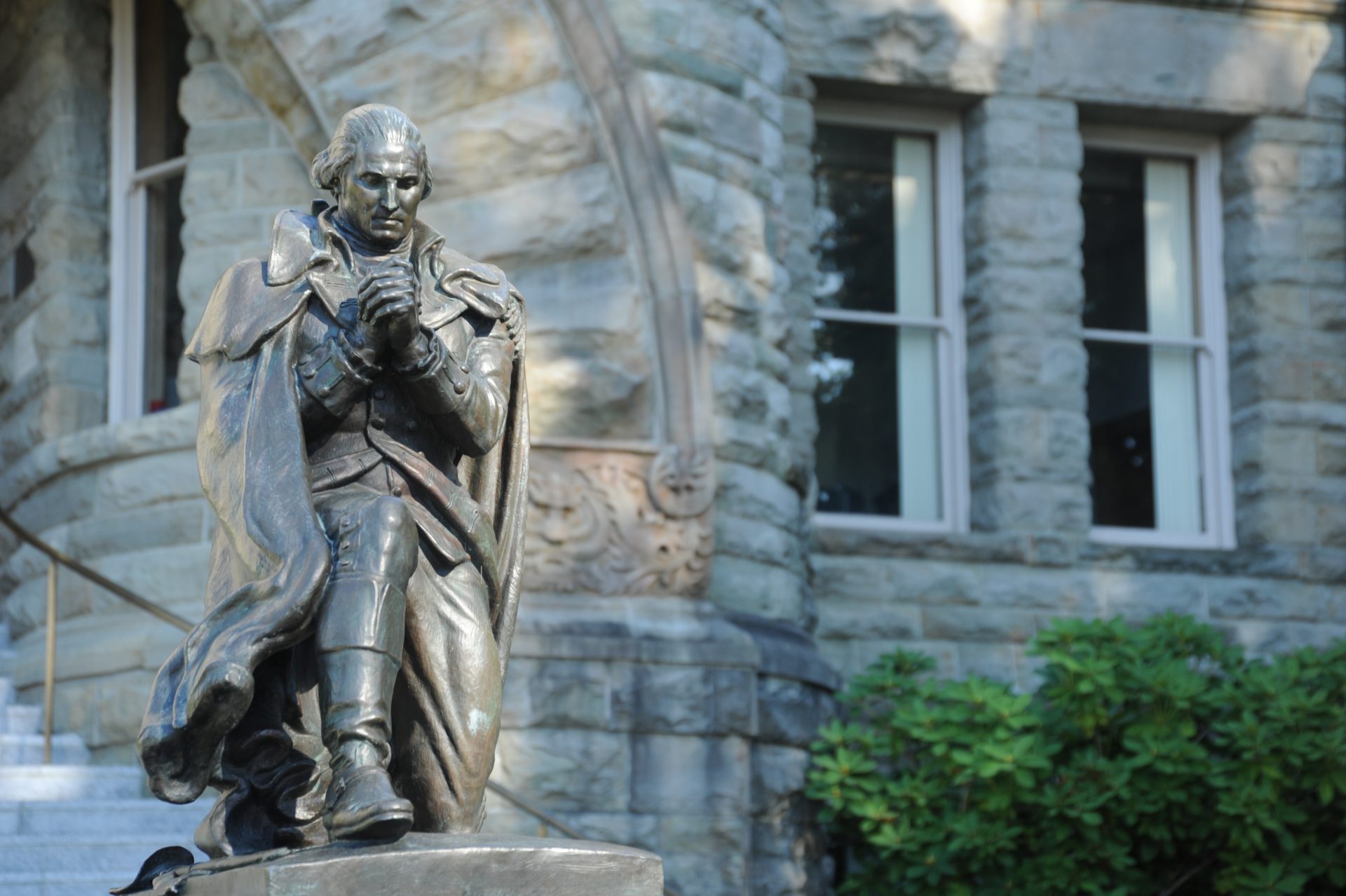
Photo by Wonderlane on Unsplash
A Christian case against prayer at public meetings
November 16, 2022
I have long been opposed to Christian prayers at the opening of public meetings. I think the case is simply made that when the chair of a city council or quorum court or some other entity prays “in the name of Jesus” they violate the Establishment Clause. When such governing bodies make a habit of praying these sorts of prayers month after month and year after year, they violate the religious liberties of minority traditions our Founders sought to protect.
The United States has always been a nation of diverse religions. At its inception it wasn’t even particularly religious, so the modern shift turning municipal meetings into mini-revivals is especially untoward. Perhaps if a civic body planned over time to offer prayers or meditations representing the full range of religious traditions (and lack thereof) within its community, such practice might be equitable. But as it stands in most places, most egregiously in my local county’s Quorum Court meetings, it’s just blatantly Christian nationalist.
The constitutional case against prayers at public meetings is clear, but it occurred to me lately that perhaps Christians who inflict such prayers on those gathered might benefit from hearing a Christian case against such prayers.
This is an attempt at that.
Let’s start with the times Jesus prays in his own name at government assemblies. Wait! Are you struggling to remember them? Well, that’s because Jesus was rarely, if ever, found in the presence of the legal authorities.
The constitutional case against prayers at public meetings is clear, but it occurred to me lately that perhaps Christians who inflict such prayers on those gathered might benefit from hearing a Christian case against such prayers.
However, there is one moment, a crucial moment. Jesus is brought before Pilate for a trial. Pilate asks Jesus, “Are you the king of the Jews?” Jesus enigmatically replies, “Is that your own idea?” Then Pilate accuses Jesus of being a king, and Jesus replies, “You say that I am a king. In fact, the reason I was born and came into the world is to testify to the truth. Everyone on the side of truth listens to me” (John 18:37 NIV).
In other words, Jesus when presented with an opportunity to pray to his Father, or to emphasize his own name and elevate it, instead shifts attention away from himself and toward…. the truth. Jesus is willing to find himself and be present exclusively in the truth, which intriguingly is a secular concept available to everyone in a democracy, regardless of their religion.
This shift in attention away from Jesus and toward the truth is of a piece with the theological motif found throughout the New Testament, the notion that God’s power is made perfect in weakness (2 Corinthians 12:9), that Jesus “made himself nothing” (Philippians 2:7). Jesus is in, with and under the things of this world, and has no need to take pride of place or be named at the beginning of meetings. He lives the dictum encapsulated by the great Danish Christian educator Nikolai Grundtvig, “Human first, then Christian.”
I’m reminded of a recent conversation. A retired judge in our community proudly told me he had prayed “in the name of Jesus” at a Rotary meeting. This made some of the other Rotarians uncomfortable, and his response to them was dramatic. “Don’t you know I’m willing to die right now for Jesus?” He told me this story because he had just learned I was a pastor and thought I’d be proud of his actions.
I think this judge had an odd martyr complex, as if naming Jesus in a prayer at a Rotary meeting was the height of Christian heroism.
Justices of the peace and other officials who pray at public meetings “in the name of Jesus” have convinced themselves they are being a witness to Jesus. It’s embarrassingly performative and tremendously out of place.
But when I heard this, I said, “If you’re so willing to die, why don’t you die to your own pride right now? If you are willing to die for the Lord who died for you, maybe join him in his own weakness and poverty and lack of self-assertion? Why not take up the cross of not inflicting your religious beliefs on others?”
Justices of the peace and other officials who pray at public meetings “in the name of Jesus” have convinced themselves they are being a witness to Jesus. It’s embarrassingly performative and tremendously out of place. What they’re really doing is witnessing to their own privilege and power, their “right” to inflict their religious views on others. Such a witness accomplishes the opposite of its supposed ends. It pushes hearers away from Jesus rather than drawing them close.
It lacks truth.
No one wants to draw close to a smug and self-satisfied deity piously offered on the lips of smug and self-satisfied officials. The Jesus named in such prayers was more humble than that, willing to lose himself without remainder in the least of these, remain unnamed even before Pilate, present especially among those who lack the power to speak for themselves.
Respectfully, get the name of Jesus out of your mouths in such meetings. Focus on truth and honesty. Jesus will be known—if at all—in and through the truth. Because authoritarianism the world over thrives on lies upon lies, drawing the name of Jesus close to it tarnishes his good name. Please stop.
Rev. Clint Schnekloth is pastor of Good Shepherd Lutheran Church in Fayetteville, Arkansas, a progressive church in the South. He is the founder of Canopy NWA (a refugee resettlement agency) and Queer Camp, and is the author of Mediating Faith: Faith Formation in a Trans-Media Era. He blogs at Substack.
The views expressed are those of the author and not necessarily those of American Baptist Home Mission Societies.


